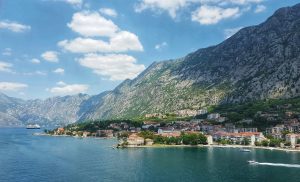The modern era is characterized by economic and social transformation, including fast development and industrial growth that have supported unmatched economic development, but also led to environmental problems, including global warming. For this reason, several countries have introduced “Green Tax Policies”. These recommendations are intended to protect the environment quality, encourage good practices, and prevent the bad effects of climate change. They encourage renewable energy, decrease carbon emissions, and encourage green technology. These activities are very important to create a sustainable and environmentally friendly future. By using carefully designed green tax strategies, countries aim to balance economic progress with protecting the planet, ensuring long-term positive change.
Several measures have also been taken by Balkan countries such as Albania, Kosovo, and North Macedonia. Through this article, we will present information on the legal and financial incorporations that these countries have undertaken regarding incentives for sustainability.
Albania
Vehicle Emissions Tax: In Albania, vehicles that generate high levels of pollution, particularly older vehicles that fall below current environmental requirements, are taxed at a higher rate. This policy is targeted to promote the adoption of greener vehicles, what is meant, namely, electric or hybrid cars.
Energy Taxes: Energy taxes cover taxes on energy used in the country of production and energy used for transportation purposes. These also encompass levies on biofuels and other energy derived from renewable resources and levies on energy reserve stocks.
Transport Taxes: Transport taxes (excluding vehicle fuel) primarily comprise taxes that are payable on vehicle ownership and operation. In this series of taxes, there are taxes on other modes of transport (airplanes, ships, trains, etc. as well as on the services of such modes.
Pollution Taxes: Pollution taxes are air-borne emissions in the atmosphere and aquatic discharge in water, solid waste management, and noise pollution. Here, the CO2 emissions carbon tax is not included because it is an energy tax.
Natural Resource Taxes: Natural resource taxes include taxes on the extraction or use of natural resources (water, forests, and wildlife).
Kosovo and North Macedonia
Energy Taxes: These taxes are based on the production and consumption of energy, both fossil and renewable. It intends to encourage the adoption of cleaner energy substitutes as well as energy efficiency.
Transport Taxes: To decrease transportation emissions, these taxes are directed toward vehicle ownership and vehicle use. These can, for example, represent taxes on vehicle registration, fuel use, and emissions. For example, taxation of fuel-efficient vehicles should encourage alternative environmentally friendly modes of transport.
Pollution Taxes: These tax environmental impacts include those of emissions to air and water, solid waste management, and noise pollution. The aim is to absorb the environmental burden linked to pollution and promote cleaner production technologies. A good example is the tax on bags of plastic that has been adopted in different countries, to limit plastic waste.
Incentives for Sustainability in Western Balkan Countries
Albania
Albania committed to increasing renewable energy to 38% of its total energy use by 2020 under the Energy Community Treaty. In reality, it reached 45%, mainly due to hydropower and wood biomass in some homes. Until 2017, Albania only provided incentives for hydropower, which led to limited development of solar and wind energy. However, by the end of 2023, a 140 MW solar plant was launched. At the same time, uncontrolled hydropower growth has caused dissatisfaction and damage to protected areas.
Albania is the only country in the Western Balkans to have built large new hydropower plants in the last decade. By the end of 2022, it had at least 25 operational plants over 10 MW, along with many smaller ones.
To read more about Albania, click here.
Kosovo
In the process of developing a green energy system in Kosovo, new alternative renewable energy sources are being researched and energy efficiency at companies are being improved. While Kosovo is not a party to the United Nations Convention on Climate Change or the Paris Agreement, it has also set similar voluntary national targets. In addition, being part of the Energy Community Treaty, Kosovo also aligns its energy and climate policies with the European Union standards with the view to making Europe the first climate-neutral continent by the year 2050.
To read more about Kosovo, click here.
North Macedonia
The European Investment Bank’s office for EU non-EU activities, in partnership with North Macedonia’s National Bank, has been supporting the Greening Financial Systems program. This collaboration will deliver council services to help enhance climate risk management and reporting across the country’s financial sector, thereby enabling banks to assist businesses in their efforts toward sustainability.
The German government-funded Greening Financial Systems program underwrites net-zero and climate-ready financial systems and promotes green investments, especially for small enterprises. North Macedonia, a beneficiary of the NDC Partnership since 2022, has committed to cut greenhouse gas emissions by 82% (relative to the 1990 baseline) by 2030.
To read more about North Macedonia, click here.
If you are considering Albania, North Macedonia, or Kosovo to live and/or conduct your business, it is advisable to consult with a professional on investment opportunities that best suit your needs. Our firm specializes in international taxation, and our team is ready to assist with any related matters. If needed, we can connect you with top professionals to support your business activities in Albania, North Macedonia, or Kosovo. Please feel free to contact us.




